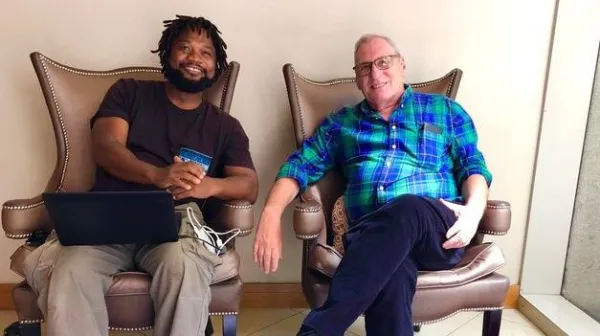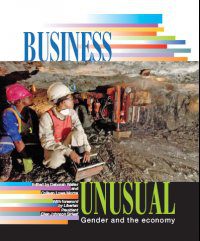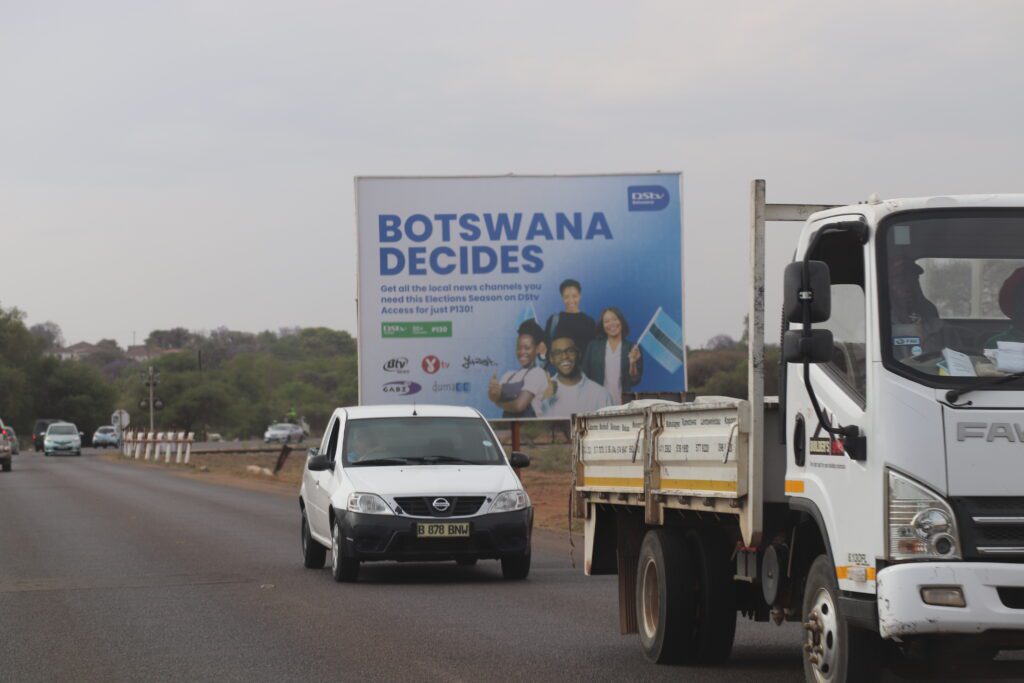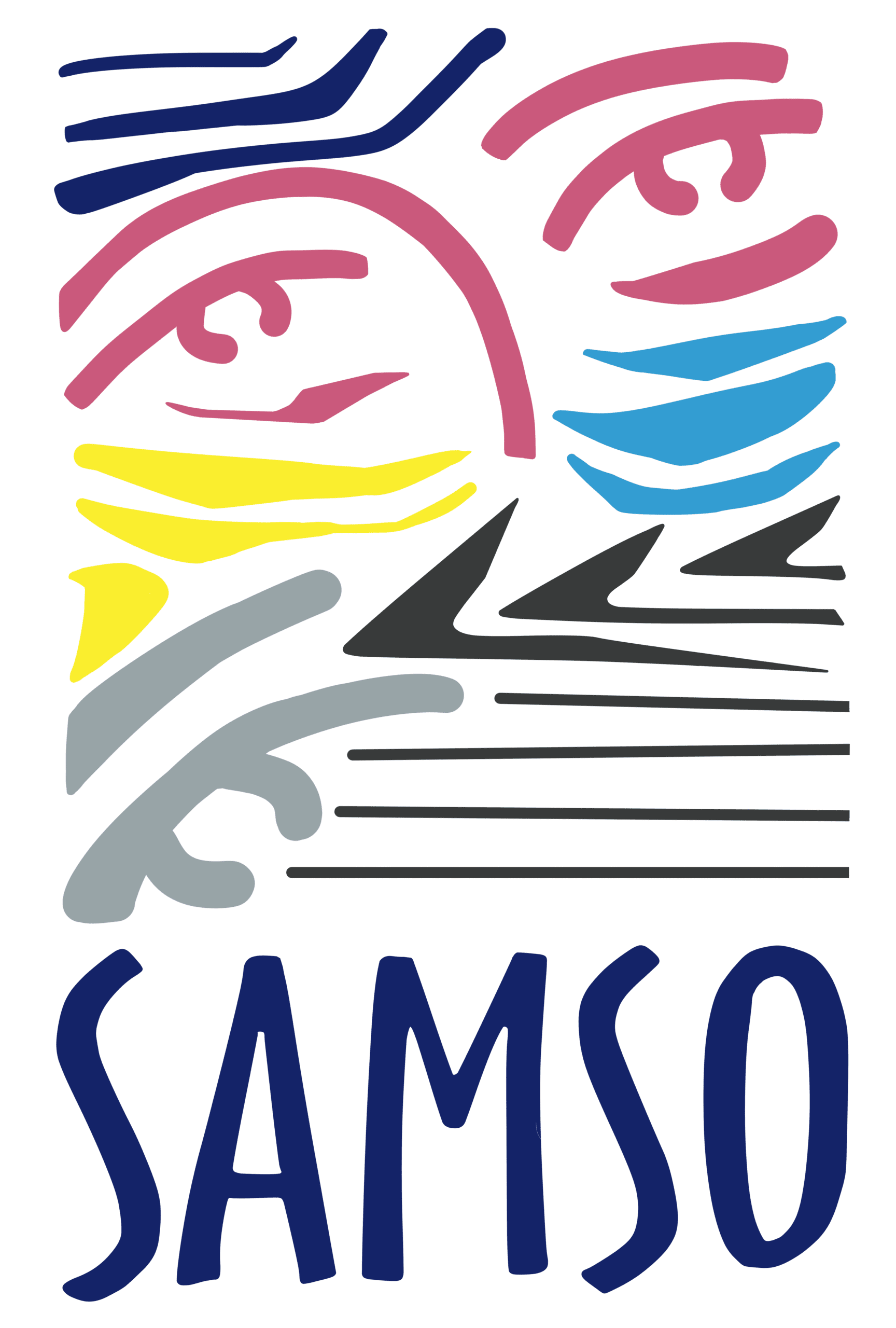In gender equality work in Southern Africa, middle-aged, married, white men such as myself, Trevor Davies are as uncommon as zebras with spots! Yet, as a member of this rare breed, I believe I can offer valuable insights. My decades-long journey with Gender Links has transformed my perspective on working with women and men, particularly in addressing gender inequality and its intersections with climate change and poverty.
My introduction to GL Director, Colleen Lowe Morna, occurred when Gender Links was a modest operation in her garage. I was managing SAMSO, a photo agency in Harare, Zimbabwe, while also chairing Rooftop Promotions and Theatre in The Park. Our clientele included various development agencies and NGOs. One of our biggest challenges was finding female photographers who could effectively capture Women in Development (WID) and Gender and Development (GAD) projects.
Men dominated the field of gender imaging, myself included. We represented the ‘male gaze’ on women’s issues, particularly concerning livelihoods and development in climate change. This realisation prompted my commitment to change. I needed a visionary partner organisation respected in the gender and media sphere, and GL exceeded my expectations.
Colleen immediately recognised the vital role of gender-sensitive imaging in challenging media stereotypes. Despite limited resources in those early years, GL prioritised this work. A decade ago, the prevalent media portrayal of Africa typically featured women and children as helpless victims of poverty, begging for food or sitting idly amidst despair. The story wrongly showed African women as powerless, promoting harmful ideas about gender inequality.
We aimed to showcase inspiring African women in business, politics, and more. These women were actively addressing causes of climate change and fighting poverty while promoting gender equality. Their “herstories” remained largely untold, and this became our guiding principle in gender and image training.
We collaborated on a proposal to NiZA, aiming to identify and train at least 20 women photojournalists across the region. The funding was quickly secured, and we launched the initiative. The workshop results were extraordinary, revealing exceptional photojournalistic talent. The emergence of an alternative ‘female gaze’ brought fresh perspectives to numerous stories.
The resulting training manual became an instant success. It’s a valuable resource, and many copies are worn from frequent use in regional newsrooms.
The impact of our training workshop resonated far beyond its initial scope.
Maria, a trainee, became President Nujoma’s main photographer. She photographed his activities and trips, adding many photos to Namibia’s collection.
Following her rise as a leading South African photographer, Neo Ntsoma collaborated with Drik and Pathshala in Bangladesh. I held founding and teaching roles there.
Neo, alongside Zimbabwean colleagues Tsvangirayi Mukwhazi and Wilson Johwa, expanded their work internationally, with their photographs featured in prestigious publications like Newsweek and Time magazine.

Since those formative days, Gender Links has experienced remarkable growth in both influence and reach. Through GL, I’ve had the privilege of training countless media students, both women, and men, in visual storytelling techniques that emphasise gender equality and diversity.
This work has spanned universities, polytechnics, media houses, and community groups across Southern Africa, with many participants going on to receive recognition for their gender-sensitive imagery.
My collaboration with the Polytechnic of Namibia stands as a particularly significant achievement. This wasn’t a brief intervention – from the outset, gender considerations and visual representation were integrated into all media training at the ‘Poly.’ When I first arrived in Namibia for ‘Echoes’ several years ago, GL and the Poly established a student news service producing both a campus newspaper and content for major publications like The Namibian and New Era.
Working alongside Raymond Joseph, Pat Made, and colleagues Paulina Shilongo and Emily Brown from the Poly, we established a newsroom from scratch in a previously abandoned campus building.
We worked tirelessly, often until 4 am, setting up computers, installing software, and developing editorial policies that addressed climate change, poverty, and gender inequality. Students quickly mastered sourcing, writing, editing, and design skills. We anxiously awaited the first edition, some even sleeping on the floor as dawn approached.
The inaugural edition featured stories that weren’t entirely complimentary to the Poly administration, raising concerns about potential censorship. However, the publication proved tremendously successful, sparking valuable discussions about media freedom and editorial independence. This commitment to honest reporting has remained steadfast ever since.
Today, many Poly graduates maintain contact through Facebook, frequently sharing their photographs. Many now hold leadership positions in The Namibian and across Southern Africa’s media landscape. They all help to expand GL’s influence in newsrooms throughout the region.
Their work sheds light on important issues like climate change and gender inequality in Southern Africa.
The “Business Unusual” training programme highlighted the intersection of gender equality and economics. I led workshops empowering women entrepreneurs in Southern Africa to thrive despite hardship.

I guided journalists to explore the gender dimensions of economic and financial news, covering both problems and solutions.
The Gender and Media Literacy courses have transformed how media consumers critically analyse gender representation. Even the Mayor of Johannesburg participated in one of these transformative sessions!
Working with women politicians on election campaigning has been incredibly rewarding. I helped them craft compelling profiles showcasing their commitment to addressing issues like climate change and poverty.

The photo sessions in Botswana were particularly memorable, with participants enthusiastically preparing for their campaign portraits. Word spread through the SADC Women’s Parliamentary Caucus, and by the time I reached Malawi, the excitement was palpable!
I believe genuine development emerges from questioning established norms, particularly regarding gender equality in Southern Africa. This philosophy sometimes creates tension within systems, as my approach to gender and development work intentionally challenges comfort zones.
My Master’s in Development Studies and my GL network helped me contribute to the Gender and Media Diversity Centre’s (GMDC) establishment.
I was able then to gracefully redirected my focus back to training, advocacy and motivation – my true strengths.
A significant initiative emerged during my time with the Gender and Media Diversity Centre. The team supported my vision to address a crucial aspect of gender work close to my heart.
Now retired as director, I still help to run the African Fathers Initiative (AFI), promoting responsible fatherhood and addressing causes of climate change through sustainable parenting practices. This project, which owes its existence to GL’s support, works towards gender equality by transforming traditional parenting roles.
Gender Links has consistently engaged both men and women in addressing gender inequality. Working with diverse genders taught me valuable sensitivity lessons. We urgently need more men actively challenging gender inequality in Southern Africa.
Fathers play a crucial role in fostering intergenerational change among boys and girls. Countless women attribute their success to their fathers’ positive influence. The disproportionate care burden on women can only be addressed when men embrace more active roles in childcare. This shift is particularly crucial in Southern Africa, where traditional gender roles often exacerbate poverty and limit opportunities for women’s economic empowerment. By promoting equal parenting responsibilities, we can create more resilient communities better equipped to face challenges like climate change and persistent gender inequality.
AFI’s innovative approaches need substantial funding, and securing donor and government support will require patience and persistence. Addressing gender inequality and the impacts of climate change through transformed parenting models takes time to become mainstream practice.
Yet when faced with obstacles, I find inspiration in reflecting on my remarkable journey. This motivates me to persevere in our mission of positioning fathers as champions of gender equality and positive parenting practices in Southern Africa, where traditional gender roles often perpetuate poverty cycles.
In the coming decade, I look forward to witnessing more transformative changes in gender norms – like those rare ‘Zebras with spots’. I’ll proudly show my daughters the evolving landscape of gender equality we’re creating. It’s rewarding to see Gender Links empower young women.
Trevor Davies is a GL Consultant and Retired Director of the Southern Africa Media Organisation (SAMSO).


Leave a Reply